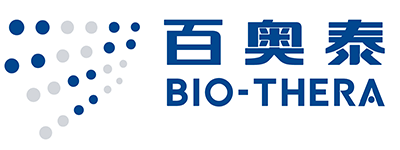Bio-Thera Solutions, a clinical-stage biopharmaceutical company developing a pipeline of innovative therapies and a pipeline of biosimilars, today announced the company will present one poster at the 2018 EORTC-NCI-AACR Symposium taking place November 13 - 16, 2018 in Dublin, Ireland.
The poster, entitled “BAT8001, a potent anti-HER2 antibody-drug conjugate with a novel stable linker for the treatment of HER2-positive gastric cancer,” will present preclinical data that highlight advantages of BAT8001 as a potential treatment for breast cancer patients. An abstract of the presentation is currently available on EORTC website.
Presentation details are as follows:
Poster Session: Molecular Targeted Agents - PART I
Session Date and Time: Tuesday, November 13, 2018, 12:00-18:30
Location: Poster Area/Exhibition Hall
Poster Board Number: PB-084
Abstract Number: 133
About BAT8001
BAT8001 is
an investigational HER2-ADC being evaluated in multiple tumor types.
HER2 is a naturally occurring receptor that is overexpressed in many
types of cancer, including breast cancer and gastric cancer. BAT8001 is
being developed for use as a single agent and in combination with other
agents for the treatment of multiple cancers. BAT8001 is currently
being evaluated in a Phase 3 clinical trial for the treatment of
metastatic breast cancer patients (more information on the trial is
available at http://www.chinadrugtrials.org.cn/ (CTR20180157)).
The BAT8001 clinical study program will be expanded beyond metastatic
breast cancer to other HER2-positive cancers, including gastric cancer,
over the next 12 months.
About Antibody-Drug Conjugates
Antibody-drug Conjugates or ADCs are designed to harness the targeting ability of monoclonal antibodies (mAbs) to deliver cytotoxic agents selectively to tumor cells by linking the monoclonal antibody and cytotoxic agent through a chemical linker. An ideal ADC consists of: 1) a highly selective mAb for a tumor-associated antigen that has little or no expression on normal cells, 2) a potent cytotoxic agent designed to induce target cell death after being internalized in the tumor cell and released and 3) a chemical linker that is stable in circulation but releases the cytotoxic agent in target cells. By selectively delivering a cytotoxic agent directly inside a tumor cell, ADCs increase the safety and tolerability of the cytotoxic agent relative to giving the cytotoxic agent systemically to the patient.


